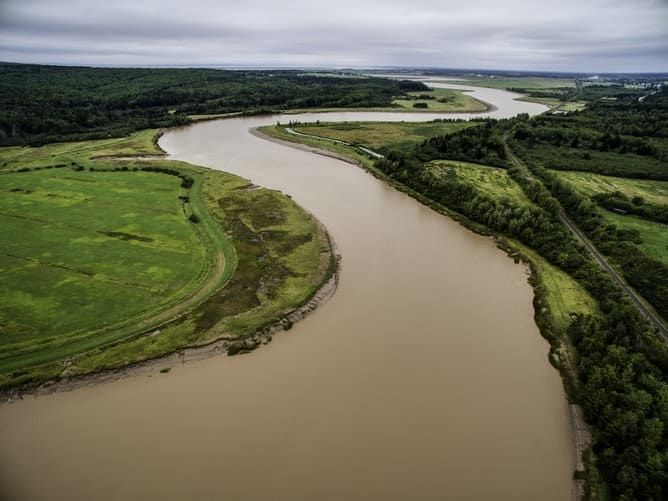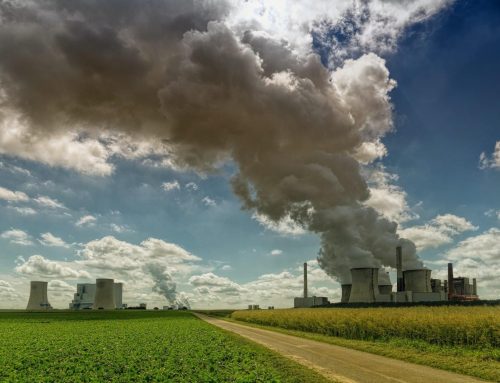Environmental due diligence is an essential process for anyone looking to buy a property, whether commercial or residential. Hidden environmental liabilities are a massive problem that you can face when purchasing a property that has not been evaluated for environmental due diligence; before making any large real estate transactions, make sure to understand the importance of this process.
What Is Environmental Due Diligence?
Environmental due diligence is the process of assessing real estate for any potential risk of environmental contamination. The Environmental Protection Agency (EPA) sets the regulations and standards for this process, and they determine which type of assessment is needed based on aspects of the property.
The process of environmental due diligence evaluates properties for things like the presence of hazardous materials or petroleum contamination and contaminants in the groundwater or soil of the property.
Related: What Is the Purpose of Zoning?
When Is Environmental Due Diligence Required?
Lending institutions typically require environmental due diligence before they will finance a real estate purchase, refinance an existing loan, or accept collateral for a construction loan. If a property is held as collateral for a loan, environmental due diligence is also usually required, as any problems would compromise the collateral property’s value.
Environmental due diligence is also often required by public agencies before they release grant funding for projects related to real estate developments and improvements.
Are you ready to close on your new property? Don’t forget your land survey!
Who Benefits from Environmental Due Diligence?
Anyone purchasing a property can benefit from environmental due diligence, even if a lending institution is not involved in the sale. The process reduces the chances of someone purchasing real estate inheriting ecological concerns created by the former owners; it also provides an essential legal defense should issues arise.
How Does Environmental Due Diligence Protect You?
Suppose environmental due diligence is performed before purchasing a property. In that case, the purchaser can gain protection from being held accountable for any pre-existing contaminations on the land according to the Comprehensive Environmental Response, Compensations, and Liability Act provisions. If this process is not completed, the new owner can be held responsible for repairing the contamination.
What Does the Comprehensive Environmental Response, Compensation, and Liability Act (CERLCA) Require?
CERCLA establishes the process that determines who is liable for any hazardous substances on a property. Any property owners who are found to violate environmental due diligence can have to pay fines and fix the issues are their own expense, even if they aren’t responsible for the original contamination. Merely owning a contaminated property is enough to make you liable in the eyes of the law; this is why environmental due diligence is so necessary.
Environmental Due Diligence Processes and Reports
Related: Detailed Zoning Reports
All Appropriate Inquiry (AAI)
All Appropriate Inquiry is the process of completing environmental due diligence. The EPA provides the AAI guidelines and recommends that the process is followed whenever a property is assessed for environmental contamination. AAI also includes specific requirements about the education and experience for professionals who conduct this process. The conducting standards for environmental due diligence to be in accordance with AAI can be found in the American Society for Testing and Materials (ASTM) guidelines.
Phase I Environmental Site Assessment (ESA)
The Phase I Environmental Site Assessment is the standard used to evaluate environmental liability associated with the transaction of real estate. Conducting an ESA before purchasing a property determines whether or not there is an environmental liability with the land. By having an ESA performed, the purchaser may qualify as an innocent landowner or contiguous owner according to CERCLA regulations; this helps the purchaser avoid being liable for any environmental contaminations on the property.
Transaction Screen Assessment (TSA)
A Transaction Screen Assessment is a scaled-down ESA; it is quicker to perform and is more cost-effective. It is the only environmental due diligence process besides the Phase I Environmental Site Assessment governed by ASTM Standard Practices. Unlike an ESA, a Transaction Screen Assessment does not fully meet the EPA requirements for environmental due diligence and does not offer the protection of CERCLA.
Records Search with Risk Assessments (RSRA)
Like a TSA, Records Search with Risk Assessments do not provide the liability protection of CERCLA. RSRA’s are a minimum requirement for commercial properties designated as low risk that may not need a full ESA. These assessments search government databases and historical records to classify the property as high or low risk for environmental contamination.
How to Find an Environmental Consultant?
When you need to find an environmental consultant to perform an analysis of a property, it is crucial to find an experienced and competent professional. Environmental due diligence must be completed in accordance with both state and federal regulations to have any legal basis. It is a complicated and time-consuming process that requires a trained professional, but how do you find the right consultant?
Tips for Hiring an Environmental Consultant
It is a good idea to talk to multiple consultants before choosing one to assess your property. You can ask them questions like:
- What kind of cleanups and investigations do you have experience dealing with?
- What insurance do you carry for any omissions, errors, or liability?
- Are you a certified USEPA AAI Environmental Professional?
Also, check any references that they can provide and be sure that the consultant gets approved through whatever lender you are using.
How Much Does Environmental Due Diligence Cost
A Phase I Environmental Site Assessment can cost anywhere between $1,500 to $6,000 for a commercial or residential property; the price range is broad because many variables can affect the cost of performing environmental due diligence, like:
- The location of the property.
- Travel costs for your consultant.
- The number of properties.
- Items that are out of scope.
- Physical features of the property.
Like searching for any service, do your research before making a final decision on who to hire; cheaper doesn’t mean better.
Related: Does a Buyer or Seller Pay for a Land Survey?
Closing Remarks
Make sure to practice environmental due diligence before closing on a property; it can save you from having liability for contaminations in the future. Research and find a reliable and professional consultant to perform this process for you; environmental due diligence works to protect you and your assets when purchasing a property.
Have you performed your due diligence? Millman National Land Services can provide National Environmental Policy Act Land Use Compliance Reports and Checklists!









